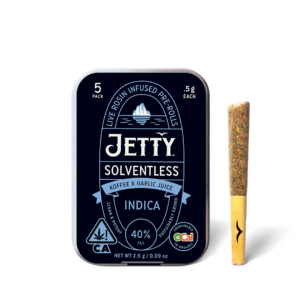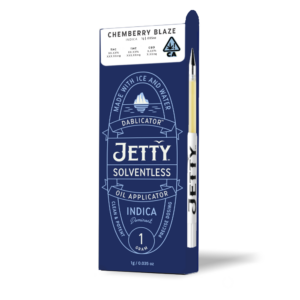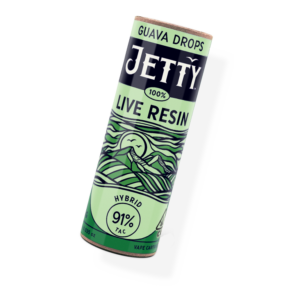Cannabis, more commonly known as marijuana, is a psychoactive drug meaning it can alter and change the functioning of the nervous system that affects the behavior of a person’s perception, behavior, mood, etc. Cannabis has many uses and benefits other than recreational use. It comes in a variety of forms such as pre rolls, live rosin, thc concentrates and more. The DCC oversees the regulations for cannabis businesses and outlines specific rules and guidelines that must be followed correctly.
When Cannabis Became Legalized
Not until recently were marijuana legalized in the US through individual states, the first two being Washington and Colorado in 2012. Cannabis became a legal medical and recreational drug for individuals 21 years of age or older with state-specific regulations.
In 2016, cannabis became legal in California, allowing individuals 21 years and older to purchase the substance as pre rolls, live rosin, thc concentrates, and other forms from a registered dispensary. The Adult Use of Marijuana Act was approved by voters and allowed adults to grow cannabis. The act created a new business avenue for the selling and distribution of marijuana products for recreational or medical use.
There remain 13 states where cannabis is illegal and 19 states where cannabis is legal for medical purposes. There are only 18 states where the drug is completely legal to use, grow, and transport making it essential to understand the regulations for each state to avoid potential issues. Over the years, more and more states have voted for the legalization of cannabis, but there remain opposing viewpoints. Cannabis has more than one use, and over time it has been more widely known for medical and industrial use.
How it Changed Society
The legalization of cannabis has altered the way society perceives the use of psychoactive drugs by lessening its stigma by removing the “illegal” nature of the drug. There are also many known uses and benefits it offers, and individuals rely on the substance to help with various medical conditions. Many people argue that the legalization of cannabis has numerous positives, including:
- Reduced crime rates
- Improvement to public health
- Advancing social equity
States allowing licensed businesses to possess and sell cannabis greatly limit crime as it allows individuals to purchase the substance without the risk of participating in illegal activity. It lowers the number of drug deals and selling cannabis that can be laced with dangerous substances. Licensed dispensaries are a safe way to purchase marijuana for medical and recreational use as the DCC has accepted them to sell the drug risk-free.
What are the Regulations?
Since cannabis is only legal in certain states throughout the US, there are strict regulations and rules in place that individuals must adhere to. California legalized cannabis in 2016 for individuals 21 years and older to buy, sell, and possess. Adults can purchase cannabis items such as pre rolls, live rosin, THC concentrates and products that are solventless concentrate, like certain vape items which are considered solventless. Regulations are in place to ensure that businesses operate safely without putting customers at risk and that cannabis is only consumed and possessed by adults. There are statutes, regulations, and ordinances set for businesses and consumers, for instance:
- Statutes
- The main statute is known as the MAUCRSA, which stands for Medicinal and Adult-Use Cannabis Regulation and Safety Act. This act oversees cannabis businesses and has set rules that they must adhere to to be licensed.
- The statute for consumers is called the Health and Safety Code, which outlines the age limit, amount of cannabis allowed per day and at a time, and rules for medical cannabis.
- Regulations
- The DCC has specific regulations for cannabis businesses that require them to follow their requirements for applications, the type of cannabis license, packaging and labeling, and the tracking and tracing system used for products. If a new product is created and a business wants to bring it to the market, like California solventless products, the DCC investigates it to confirm it is safe to sell.
- The DCC is in charge of regulating cannabis stores and dispensaries and has rules that specify how a business can be run, ingredients allowed to be used in products, packaging requirements, and the testing of products to ensure they are safe for consumption, and consequences for businesses that do not comply.
- Ordinances
- Ordinances are set by cities within California that set additional rules, one of them being an equity ordinance. This ordinance has programs that assist individuals affected by the War on Drugs, a campaign led by the federal government that aims to limit the illegal drug trade.
- The ordinance makes the application process easier and faster and assists in the licensing process which can take time. It also offers financial support for the individuals that need it.
Conclusion
It is essential to understand the rules and regulations regarding selling and buying cannabis products. The DCC has information for potential businesses to understand what is required and how to follow the rules. Even though cannabis has many stigmas around its use and purpose, there are many additional features and services it offers. The legalization of recreational use in California and other states has changed the way individuals view cannabis, and businesses have made new and safe ways to consume the drug. There are solventless concentrate products available for individuals who want a healthy option and many other types. The state government ensures that cannabis is safely sold and consumed and is regulated by the DCC.















